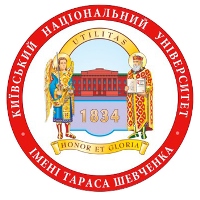ETYMOLOGICAL SPECIFICS OF THE NATIONAL SECURITY VOCABULARY IN ENGLISH: BASED ON THE VOCABULARY OF INTELLIGENCE SPHERE
DOI:
https://doi.org/10.17721/folia.philologica/2025/9/2Keywords:
specialized vocabulary, national security, intelligence, borrowing, metaphorization, euphemization, onomastic unitsAbstract
The article examines etymological specifics of the national security vocabulary in English based on the vocabulary of the intelligence sphere. The relevance of the research topic is determined by the fact that, in the context of growing global threats, hybrid wars and informational confrontation, the vocabulary of the national security and intelligence sphere in English is becoming increasingly relevant. The study of the etymological features of such vocabulary allows not only to trace its historical formation, but also to reveal the influence of sociopolitical factors on its semantic evolution. Despite the availability of dictionaries and reference books on intelligence, intelligence vocabulary as a separate subsystem of the English language has not yet been the subject of sufficient in-depth analysis. The aim of this research is to identify the etymological features of the vocabulary of the national security sphere based on the material of dictionary entries of the intelligence sphere dictionary. In the course of the study, the concept of the vocabulary of the national security sphere is presented, the concept of intelligence and its relation to the national security sphere is investigated, and the etymological features of the lexical units of national security presented in the intelligence sphere dictionaries are analyzed. Given that the vocabulary of the intelligence sphere is a complex and multifaceted element of the language system, which is constantly evolving under the influence of political, social and technological changes, and the vocabulary of the intelligence sphere is formed in conditions of high confidentiality, specialization and efficiency, the focus of practical analysis is concentrated on such sources of the vocabulary of the intelligence sphere as borrowings from Latin, Greek, French, Italian and other languages, as well as the role of rethinking common language vocabulary and terminologies of other spheres of activity, metaphorization, euphemization and onomastic formations in the process of forming lexical units. Particular attention is paid to lexemes that reflect the internal terminology of intelligence agencies (e.g., aardwolf, asset, Pollyanna), their origin and semantic transformations. As a result, it was revealed that the vocabulary of the intelligence sphere is a dynamic, confidential, highly specialized system, the development of which is determined by both internal factors and interlingual contacts of specialists.
References
Bondarchuk, O.H., Bondarchuk, O.I., Hlukh, M.V., & Harbinska-Rudenko, A.V. (2024). Pravove rehuliuvannia natsionalnoi bezpeky: navchalnyi posibnyk [Legal regulation of national security: Textbook]. Irpin: Derzhavnyi podatkovyi universytet [in Ukrainian].
Zaitsev, D.V., Nakonechnyi, A.P., Pakharev, S.O., & Lutsenko, I.O. (2016). Viiskova rozvidka: navchalnyi posibnyk [Military intelligence: Textbook]. Kyiv: Vydavnychо-polihrafichnyi tsentr “Kyivskyi universytet” [in Ukrainian].
Zaiats, L.I. (2023). Leksyka sfery natsionalnoi bezpeky: do vyznachennia poniattia [Vocabulary of the national security sphere: toward defining the concept]. Science and innovation of modern world. Proceedings of the 12th International scientific and practical conference (pp. 241–244). London: Cognum Publishing House [in Ukrainian].
Pro natsionalnu bezpeku Ukrainy: Zakon Ukrainy № 2469-VIII vid 21.06.2018 [On the national security of Ukraine: Law of Ukraine No. 2469-VIII of 21.06.2018]. Retrieved from https://zakon.rada.gov.ua/laws/show/2469-19#Text [in Ukrainian].
Pro rozvidku: Zakon Ukrainy № 2396-VIII vid 17.09.2020 [On intelligence: Law of Ukraine No. 2396-VIII of 17.09.2020]. Retrieved from https://zakon.rada.gov.ua/laws/show/912-20#Text [in Ukrainian].
Goldman, J. (2006). Words of Intelligence: A Dictionary. Lanham: The Scarecrow Press, Inc. [in English].
Johnson, L.K. (Ed.). (2010). The Oxford Handbook of National Security Intelligence. Oxford: Oxford University Press [in English].
Merriam-Webster’s Dictionary (2025). Retrieved from https://www.merriam-webster.com/ [in English].
Mijalković, S., & Blagojević, D. (2014). The basis of national security in international law. Žurnal za kriminalistiku i pravo, 1, 49–68 [in English].
Online Etymology Dictionary (2025). Retrieved from https://www.etymonline.com/ [in English].
Origins of CIA (2005). Retrieved from https://www.cia.gov/readingroom/docs/CIARDP75B00380R000700080025-4.pdf [in English].
Risen, J. (2006). State of War: The Secret History of the CIA and the Bush Administration. New York: Free Press.
West, N. (2015). Historical Dictionary of International Intelligence (2nd ed.). Lanham: Rowman & Littlefield.










